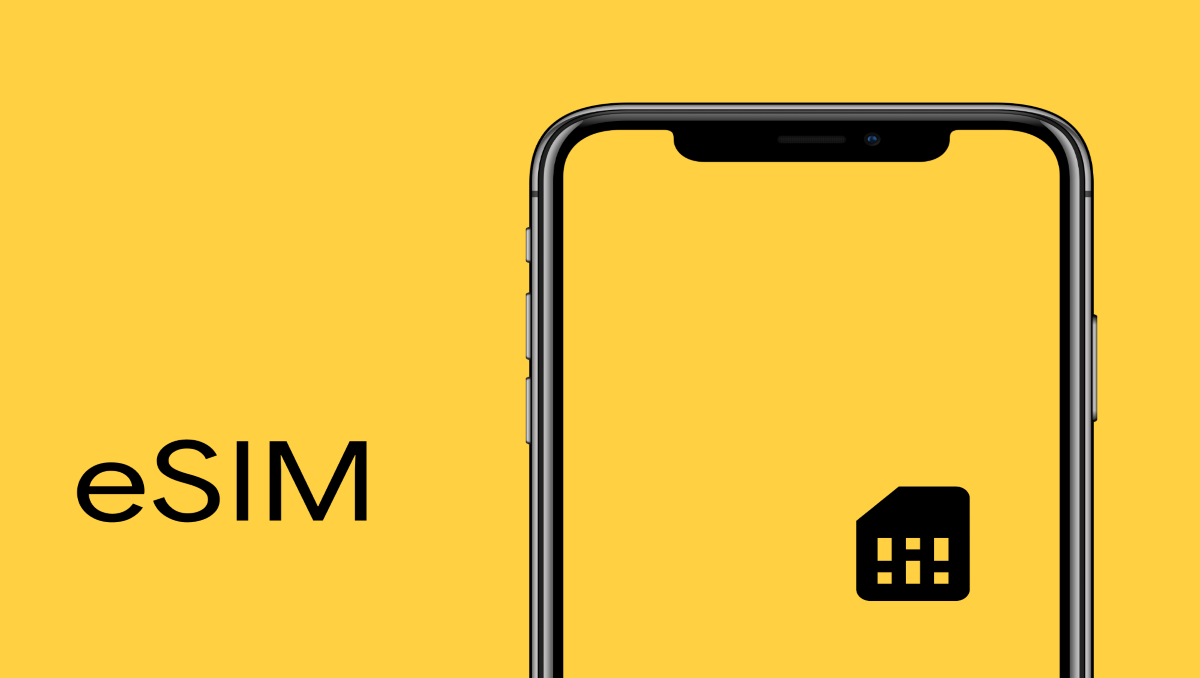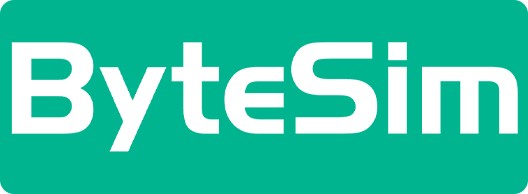How to Activate and Set Up eSIMs on Your Devices in India
Aug 22,2023 | Jack
Table of contents
What is eSIM and How Does it Work?
- eSIM technology and its advantages over traditional physical SIM cards
- eSIMs function in devices, including smartphones, tablets, smartwatches, etc.
Activating the eSIM on Your Device
Troubleshooting and Common Challenges
- Issues during eSIM activation and setup
- Tips for dealing with common issues that users may encounter
Managing and Switching Between eSIMs
eSIM Security and Privacy Considerations
- Security measures for protecting personal data on eSIMs
- Tips for ensuring privacy and secure usage of eSIMs on devices
Benefits and Limitations of eSIMs in India
In recent years, the adoption of eSIM (embedded SIM) technology has witnessed a significant surge, and India is no exception to this trend. eSIMs offer a more streamlined and flexible approach to mobile connectivity, eliminating the need for traditional physical SIM cards. As eSIMs gain prominence in the Indian market, it becomes essential for users to understand the activation and setup process to leverage the benefits they offer fully.

The activation and setup process for eSIMs can be unfamiliar to many users, especially those who have been using physical SIM cards for a long time. It is crucial to understand the intricacies of esim india activation to ensure a smooth and hassle-free transition. This article aims to guide users through the process of activating and setting up eSIMs on their devices in India, making the experience convenient and accessible.
What is eSIM and How Does it Work?
· eSIM technology and its advantages over traditional physical SIM cards
An embedded Subscriber Identity Module, or eSIM, is a virtual SIM technology that enables activation and network connection of devices without the use of a physical SIM card. Because eSIMs are physically embedded into the hardware of the device rather than being installed like traditional SIM cards, they are more user-friendly and allow for a more streamlined design.
One of the significant advantages of eSIMs is their versatility. Users can switch between multiple eSIM profiles without having to swap physical cards, making it especially beneficial for frequent travelers or those managing multiple phone numbers. Additionally, eSIMs enable devices to be thinner and lighter, creating more space for other essential components.
· eSIMs function in devices, including smartphones, tablets, smartwatches, etc.
eSIM technology is compatible with a wide range of devices, including smartphones, tablets, smartwatches, laptops, and even some Internet of Things (IoT) devices. When a user purchases a device with eSIM capabilities, they can activate the eSIM by connecting to a mobile network or using a QR code provided by their eSIM provider.
Upon activation, the eSIM downloads the necessary credentials and data from the network provider, enabling the device to connect to the mobile network seamlessly. Users can access their mobile plans, make calls, send messages, and use data services just like with a physical SIM card.
Checking Device Compatibility
· Devices that support eSIM activation in India
Before proceeding with eSIM activation, users need to ensure that their devices support eSIM technology. Most modern smartphones, including the latest iPhone and Android models, offer eSIM compatibility. Additionally, certain tablets, smartwatches, and laptops also support eSIM activation.
· How to check if your device is eSIM compatible
To determine if your device supports eSIM activation, follow these steps:
For iPhones
Go to Settings > Cellular > Add Cellular Plan. If you see an option to scan a QR code or add a cellular plan using your carrier's app, your device supports eSIM.
For Android devices
Go to Settings > Network & Internet> Mobile network > Advanced > Carrier. If you see an option to add an eSIM profile, your device supports eSIM.
Choosing an eSIM Provider
· Research eSIM Providers in India
Once you have confirmed that your device is eSIM compatible, the next step is to research and choose an eSIM provider in India. Look for reputable providers that offer reliable network coverage and data plans that suit your needs. Consider factors such as data allowances, validity periods, network speeds, and customer support.
· Purchase an eSIM Plan
After selecting an eSIM provider, purchase the eSIM plan that best aligns with your requirements. Many providers offer various data packages with different validity periods, so choose the one that meets your data usage and travel needs in India.
Activating the eSIM on Your Device
· Step-by-Step Activation Process
The eSIM activation process typically involves the following steps:
- Purchase the eSIM plan from your chosen provider. You may receive a QR code or a confirmation email containing instructions for activation.
- If you received a QR code, go to Settings > Cellular > Add Cellular Plan on your iPhone.
- Scan the QR code with your device's camera to initiate the eSIM activation process.
- Follow the on-screen instructions to download and install the eSIM profile on your device.
- Once the eSIM is activated, you can switch between eSIM profiles and manage your cellular plans within your device's settings.
· QR Code Scanning and App Installation
For most eSIM activations, scanning a QR code provided by the eSIM provider is the most common method. Alternatively, some providers may require you to download their dedicated app to complete the activation process.
Troubleshooting and Common Challenges
· Issues during eSIM activation and setup
While the eSIM activation process is generally straightforward, some users may encounter issues or challenges along the way. These can include connectivity problems, incorrect QR code scanning, or insufficient activation data. To troubleshoot such problems, consider the following steps:
Check your internet connection
Ensure that you have a stable internet connection while activating the eSIM.
Verify the QR code
Double-check the QR code provided by your eSIM provider to ensure its accuracy. If it doesn't work, reach out to the provider for assistance.
Verify eSIM plan details
Ensure that you have purchased the correct eSIM plan with the desired data package and validity period.
· Tips for dealing with common issues that users may encounter
No network coverage
If you experience a lack of network coverage, try restarting your device or toggling airplane mode on and off to force a network search.

eSIM profile not visible
If your eSIM profile does not appear after scanning the QR code, check if you installed the profile correctly and that it corresponds to the QR code's details.
Activation error messages
If you encounter any error messages during activation, follow the instructions provided or contact your eSIM provider for assistance.
Managing and Switching Between eSIMs
· Manage multiple eSIMs on dual SIM devices
One of the significant advantages of eSIMs is the ability to use multiple profiles simultaneously on dual SIM devices. This feature allows users to switch between different eSIM plans for work and personal use or to have a local number while traveling.
To manage multiple eSIMs on a dual SIM device, go to Settings > Cellular > Cellular Plans (or a similar option for Android) and select the desired eSIM profile for each line.
· Switching between eSIMs and managing preferences
Switching between eSIMs is straightforward and can be done within the device settings. Users can also set preferences for data usage and call to ensure that the correct eSIM profile is used for each type of communication.
eSIM Security and Privacy Considerations
· Security measures for protecting personal data on eSIMs
While eSIMs offer convenience and flexibility, it is essential to prioritize security. eSIMs are designed with robust security measures, and the virtual nature of eSIM technology reduces the risk of physical tampering or theft.
However, users should take precautions such as setting strong passcodes, enabling remote locking and wiping, and avoiding sharing sensitive information over unsecured networks.
· Tips for ensuring privacy and secure usage of eSIMs on devices
Enable device security features
Set up biometric authentication, passcodes, or PINs to secure your device from unauthorized access.
Keep your device and software updated
Regularly update your device's operating system and security patches to ensure protection against potential vulnerabilities.
Avoid unsecured Wi-Fi networks
Refrain from using public or unsecured Wi-Fi networks to prevent data interception and unauthorized access.
Benefits and Limitations of eSIMs in India
· Advantages of using eSIMs
eSIMs bring several benefits to users in India, including:
Convenience
No need to physically insert or remove SIM cards when switching between networks.
Flexibility
Ability to manage multiple eSIM profiles, making it ideal for travelers and professionals.
Space-saving
eSIMs free up space in devices, allowing for sleeker designs and more internal components.
Remote activation
eSIMs can be activated remotely, making it easy to switch providers without visiting a store.
· Limitations or challenges with eSIMs in India
Limited device compatibility
Not all devices support eSIM technology, especially older models.
Dependence on network coverage
eSIMs, like traditional SIM cards, rely on network coverage, so areas with poor connectivity may affect performance.
Service provider limitations
Some eSIM providers may have restricted network coverage or limited data packages.
Conclusion
In conclusion, eSIMs provide a cutting-edge method that is adaptable to mobile connectivity in India. Users must have a solid understanding of the eSIM activation and setup process in order to make the most of the benefits this technology offers. Users in India who embrace eSIM technology are able to take advantage of the benefits of multiple network profiles without having to deal with the hassle of physical SIM cards.
In order to guarantee a smooth and safe activation procedure for improved mobile connectivity, it is important to seek assistance from reputable eSIM providers as the technology behind eSIMs continues to advance at a rapid pace. Users can make the most of eSIMs on their devices by remaining informed and following the provided guidelines. This will allow them to enjoy a more connected and convenient experience both in India and beyond.



